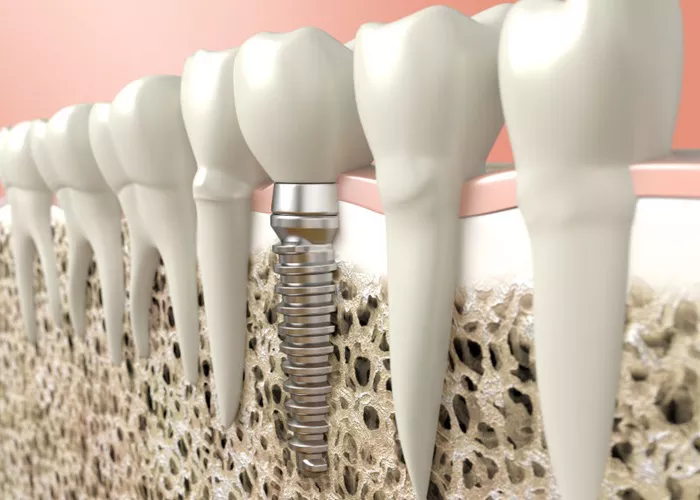Dental implants have become a popular and effective solution for replacing missing teeth. They offer a stable, long-lasting, and aesthetically pleasing alternative to traditional dentures and bridges. However, one of the most common questions patients have about dental implants is how long they will last. In this article, we will explore the factors that influence the lifespan of dental implants, with a focus on how long all four implants might last from a professional dentist’s perspective.
Factors Influencing the Lifespan of Dental Implants
1. Quality of the Implant Material
The quality of the implant material plays a crucial role in determining its lifespan. Dental implants are typically made from titanium or titanium alloys, which are biocompatible and strong enough to support the restoration. High-quality implants are precision-engineered to ensure optimal fit and function, reducing the risk of complications such as implant failure or infection.
2. Bone Density and Quality
The success of dental implants largely depends on the density and quality of the jawbone. Implants need sufficient bone support to remain stable and functional. Patients with poor bone density may require additional procedures, such as bone grafting, to ensure adequate bone support before implant placement. The lifespan of implants can be compromised if the jawbone is not strong enough to support them.
3. Placement and Angle of the Implants
The placement and angle of the implants are critical factors in determining their lifespan. Implants should be placed in optimal positions to distribute chewing forces evenly and avoid stress concentrations. Poorly placed implants are more susceptible to failure and may require revision surgery. The angle of the implants also affects their stability and can impact the lifespan of the restoration.
4. Oral Hygiene and Maintenance
Maintaining good oral hygiene is essential for the long-term success of dental implants. Implants, like natural teeth, can be affected by plaque and tartar buildup, which can lead to gum inflammation and bone loss. Regular dental check-ups and cleanings, along with daily brushing and flossing, are crucial for preventing implant failure and maintaining their lifespan.
5. Lifestyle and Habits
Certain lifestyle habits can affect the lifespan of dental implants. Smoking, for example, is a significant risk factor for implant failure. Smokers are more likely to experience implant complications such as infection and bone loss. Other habits, such as grinding or clenching teeth, can also put excessive stress on implants and shorten their lifespan.
6. Quality of the Restoration
The quality of the restoration placed on top of the implants also affects their lifespan. A well-made restoration, such as a porcelain crown or bridge, will fit securely and function properly, reducing the risk of complications. Poorly made restorations can lead to problems such as chipping, cracking, or loosening, which can compromise the stability and lifespan of the implants.
How Long Will All Four Implants Last?
The lifespan of dental implants can vary significantly depending on the factors mentioned above. In general, dental implants have a high success rate and can last for many years, even decades, with proper care and maintenance. However, it is important to note that there is no guarantee that implants will last forever.
For all four implants, the lifespan can range from several years to several decades. Some patients may experience implant failure within a few years, while others may have implants that last for the rest of their lives. The key to maximizing the lifespan of implants is to follow the recommendations of your dentist, maintain good oral hygiene, and avoid habits that can compromise their stability.
Signs of Implant Failure
It is important to be aware of the signs of implant failure so that you can seek treatment promptly if necessary. Common signs of implant failure include:
- Pain or discomfort around the implant
- Swelling or inflammation of the gums
- Loose or shifting restoration
- Discharge or bad breath
- Visible bone loss around the implant
If you experience any of these signs, it is important to contact your dentist for an evaluation. Early detection and treatment of implant failure can help prevent further complications and preserve the lifespan of your implants.
Preventive Measures to Extend the Lifespan of Implants
To extend the lifespan of your dental implants, follow these preventive measures:
Maintain good oral hygiene by brushing and flossing daily and scheduling regular dental check-ups and cleanings.
Avoid smoking and other harmful habits that can compromise the health of your implants.
Eat a balanced diet and avoid hard or sticky foods that can damage your restoration.
Follow your dentist’s recommendations for post-operative care and maintenance.
Conclusion
Dental implants are a durable and effective solution for replacing missing teeth. However, their lifespan can vary depending on factors such as the quality of the implant material, bone density and quality, placement and angle of the implants, oral hygiene and maintenance, lifestyle habits, and the quality of the restoration. By understanding these factors and taking preventive measures to extend the lifespan of your implants, you can enjoy the benefits of a beautiful and functional smile for many years to come.
Related topics:

